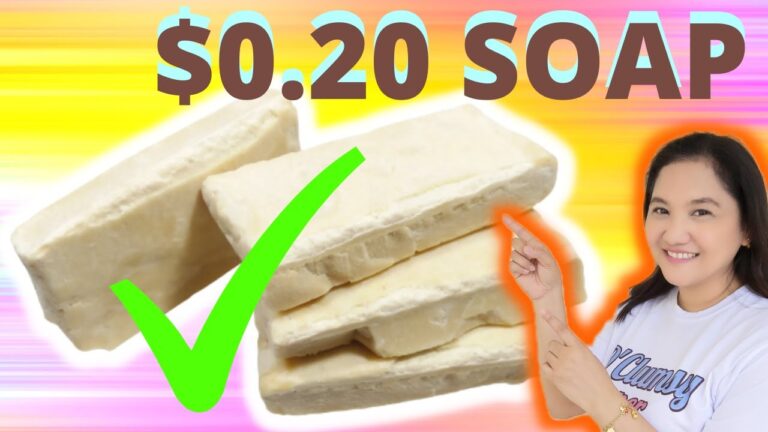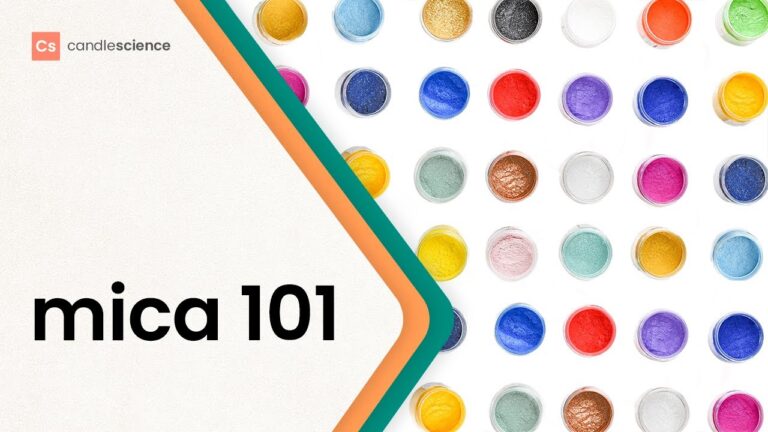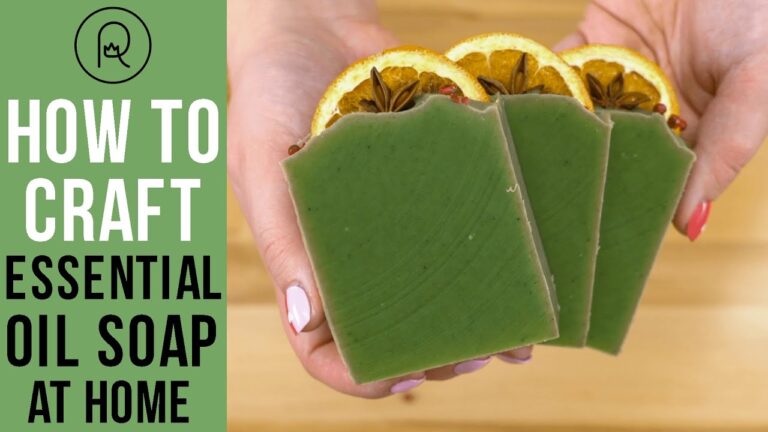In the world of soap making, the use of upcycled materials is gaining popularity for its eco-friendly and creative approach. By repurposing items that would have otherwise been discarded, soap makers are able to reduce waste while adding unique textures and colors to their products. From coffee grounds to citrus peels, the possibilities are endless when it comes to incorporating upcycled materials into soap making. Join us as we explore the innovative and sustainable practices that are revolutionizing the art of soap crafting.
Advantages
- Eco-friendly: Using upcycled materials in soap making helps reduce waste and promotes sustainability by giving new life to discarded items.
- Unique textures and colors: Upcycled materials can add interesting textures and colors to soaps, creating visually appealing and one-of-a-kind products.
- Cost-effective: Utilizing upcycled materials can help lower production costs, making it a more affordable option for soap makers.
- Marketing appeal: Consumers are increasingly drawn to products that are environmentally friendly, making soaps made with upcycled materials a selling point for eco-conscious customers.
Disadvantages
- Inconsistent quality: Upcycled materials can vary in quality, leading to inconsistencies in the final product.
- Limited availability: Finding enough upcycled materials to use in soap making can be challenging, especially for larger production runs.
- Potential allergens: Some upcycled materials may contain allergens that can cause skin irritation or other adverse reactions in some individuals.
- Unpredictable scent: The scent of upcycled materials can be unpredictable and may not always blend well with other ingredients in the soap.
- Environmental concerns: While upcycling materials can be a sustainable practice, there may still be environmental concerns related to the sourcing and processing of these materials for use in soap making.
What element is used to prepare soap?
Sodium hydroxide is the key ingredient used in the preparation of soap. This compound acts as the saponification alkali in most soap production processes. Alternatively, soap can also be made using potassium hydroxide as the alkali, resulting in potassium soaps that are more soluble in water than sodium soaps. When in concentrated form, potassium soaps are referred to as soft soap, offering a different texture and solubility compared to traditional sodium-based soaps.
What is used to make soap?
Soap is made by combining fat or oil with an alkali, typically sodium hydroxide in bar soap-making. The fat or oil can be sourced from animals or plants, and when mixed with lye, a chemical alkali, it creates the cleansing product we use daily.
Which ingredients in soap are harmful to the environment?
Some common ingredients in soap that are bad for the environment include synthetic fragrances, parabens, and triclosan. Synthetic fragrances are often made from petroleum-based chemicals and can contribute to air pollution and harm aquatic life when washed down the drain. Parabens are preservatives that have been linked to hormone disruption in wildlife and can bioaccumulate in the environment over time. Triclosan is an antibacterial agent that can disrupt aquatic ecosystems and contribute to the development of antibiotic-resistant bacteria.
To protect the environment, it is important to choose soaps that are free from these harmful ingredients. Look for soaps that are made with natural fragrances from essential oils, and are free from parabens and triclosan. Opt for biodegradable and eco-friendly soaps that are gentle on the environment while still effectively cleansing your skin. By making conscious choices when it comes to the ingredients in your soap, you can help reduce your impact on the environment and promote a healthier planet for future generations.
Creating Sustainable Suds: Upcycling for a Cleaner Future
Introducing sustainable suds, a revolutionary concept in the world of cleaning products. By upcycling materials that would otherwise end up in landfills, we are paving the way for a cleaner future. Our innovative approach not only reduces waste, but also creates high-quality, eco-friendly cleaning solutions that are gentle on the planet. Join us in the movement towards a more sustainable way of keeping our homes and environment clean.
Innovative Soap Crafting: Transforming Waste into Wellness
Innovative Soap Crafting: Transforming Waste into Wellness introduces a unique approach to sustainability and self-care through the art of soap making. By using leftover ingredients and materials that would otherwise go to waste, this method not only reduces environmental impact but also promotes a sense of well-being. With a focus on creativity and resourcefulness, this innovative practice allows individuals to harness their creativity while contributing to a healthier planet. Dive into the world of soap crafting and discover the transformative power of turning waste into wellness.
Eco-Friendly Cleansing: The Art of Upcycled Soap Making
In the world of Eco-Friendly Cleansing, upcycled soap making is an art form that not only benefits the environment but also your skin. By utilizing leftover ingredients and materials, you can create unique and sustainable soaps that are gentle and effective. Upcycled soap making allows you to reduce waste and minimize your carbon footprint while indulging in a luxurious and eco-conscious cleansing experience.
With a focus on utilizing natural and organic ingredients, upcycled soap making is a holistic approach to skincare that promotes health and sustainability. By repurposing materials that would otherwise end up in landfills, you can create beautiful and nourishing soaps that are free from harsh chemicals and toxins. The art of upcycled soap making allows you to take control of what goes on your skin, ensuring that you are using products that are both safe for you and the planet.
Embrace the art of upcycled soap making and transform your daily cleansing routine into a sustainable and rewarding experience. By incorporating creativity and innovation into your soap making process, you can create personalized products that reflect your values and commitment to environmental conservation. Join the movement towards eco-friendly cleansing and discover the beauty of upcycled soap making today.
Redefining Clean: Upcycled Ingredients for a Healthier You
Experience a new level of sustainability with our upcycled ingredients, redefining clean beauty and wellness for a healthier you. Our innovative products are crafted from reclaimed materials, transforming waste into high-quality, nourishing ingredients that are not only good for you, but also good for the planet. Elevate your self-care routine with our eco-friendly and ethically sourced creations, and join us in making a positive impact on both your health and the environment.
Incorporating upcycled materials into soap making not only reduces waste but also adds a unique and sustainable element to the final product. By utilizing discarded ingredients like coffee grounds, citrus peels, and oatmeal, soap makers can create eco-friendly soaps that are both visually appealing and environmentally conscious. Embracing the concept of upcycling in soap making not only benefits the planet but also allows for endless opportunities for creativity and innovation. So next time you’re looking to try your hand at soap making, consider giving upcycled materials a chance to shine in your creations.



